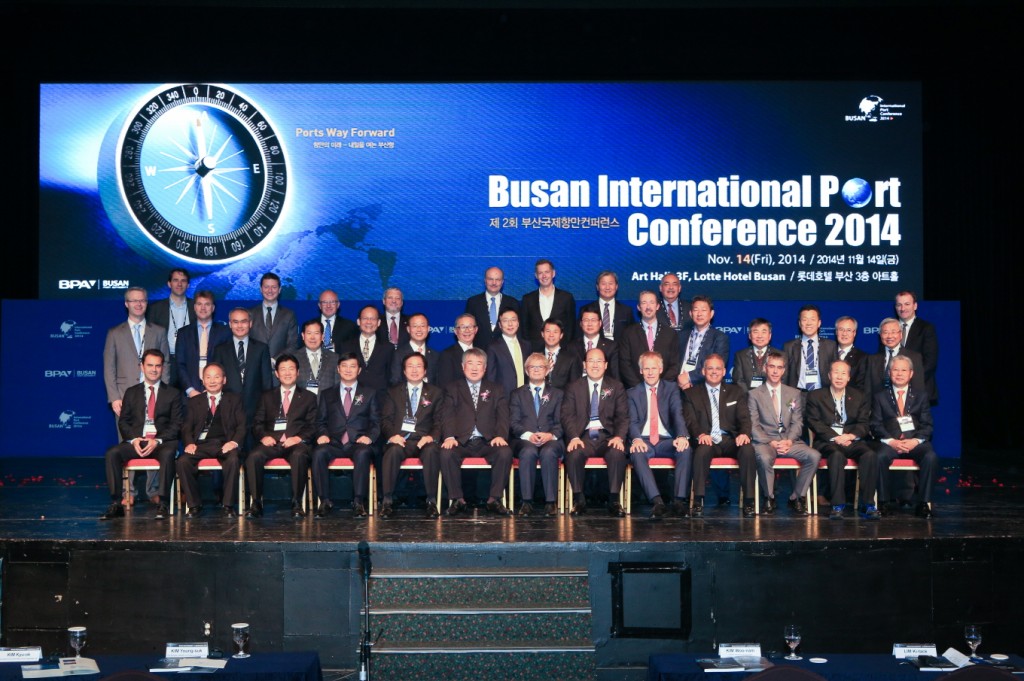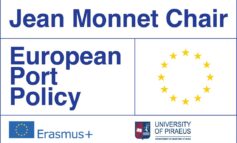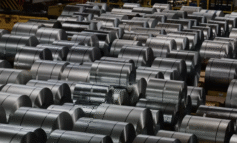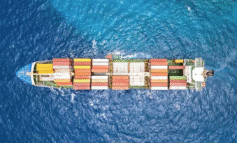PortEconomics co-director Prof. Theo Notteboom (Dalian Maritime University and University of Antwerp) gave his perspectives on ‘Dock labour arrangements in European ports: the quest for flexibility and efficiency’ during the prestigious 2nd Busan International Port Conference (BIPC) in Busan, Korea on 14 November 2014. About 400 port leaders in the global port and shipping industry attended the event, that was organised by the Busan Port Authority
 In a session on ‘dock labour’, Theo provided a deeper understanding of the dynamics behind dock labour in North-West European ports. Technological advances and scale increases in ship types and terminals, increased containerisation, changes in inland transport requirements, the rise of terminal networks and the functional integration of terminals in supply chain management practices and broader logistics poles have led to renewed market requirements on dock labour.
In a session on ‘dock labour’, Theo provided a deeper understanding of the dynamics behind dock labour in North-West European ports. Technological advances and scale increases in ship types and terminals, increased containerisation, changes in inland transport requirements, the rise of terminal networks and the functional integration of terminals in supply chain management practices and broader logistics poles have led to renewed market requirements on dock labour.
Market players demand a maximization of the performance of dock workers (with an optimization of the direct costs of port work as a prerequisite) and a minimization of the indirect costs of port labour. The response to changing market requirements takes place within a wider setting of legal and social conditions. Ports across Europe are different in the way the dock labour system tries to provide an answer to the market needs in terms of flexibility, productivity, quality and cost efficiency of dock workers. While the pace of change differs among North-West European ports, there is a general trend towards open and autonomous pool systems with back-up of temporary employment agencies and a general tendency or push from the employers’ side towards continuous working, flexible start times and variable shift lengths. Labour unions remain very present in North-West European seaports, no matter the dock labour system in place. Social dialogue through effective bodies of joint consultation at the level considered appropriate by the social partners (e.g. regional, national) is considered as the key to a sustainable relation between employers and trade unions.
The session was chaired by Cameron Thorpe, Korea Representative of DP World & Vice President of Pusan Newport Company and also included speakers from the Busan Port & Transport Workers’ Union, Hapag-Lloyd(Korea) and Busan New Port Container Terminal.
You may freely download Theo’s presentation @PortEconomics.eu.












